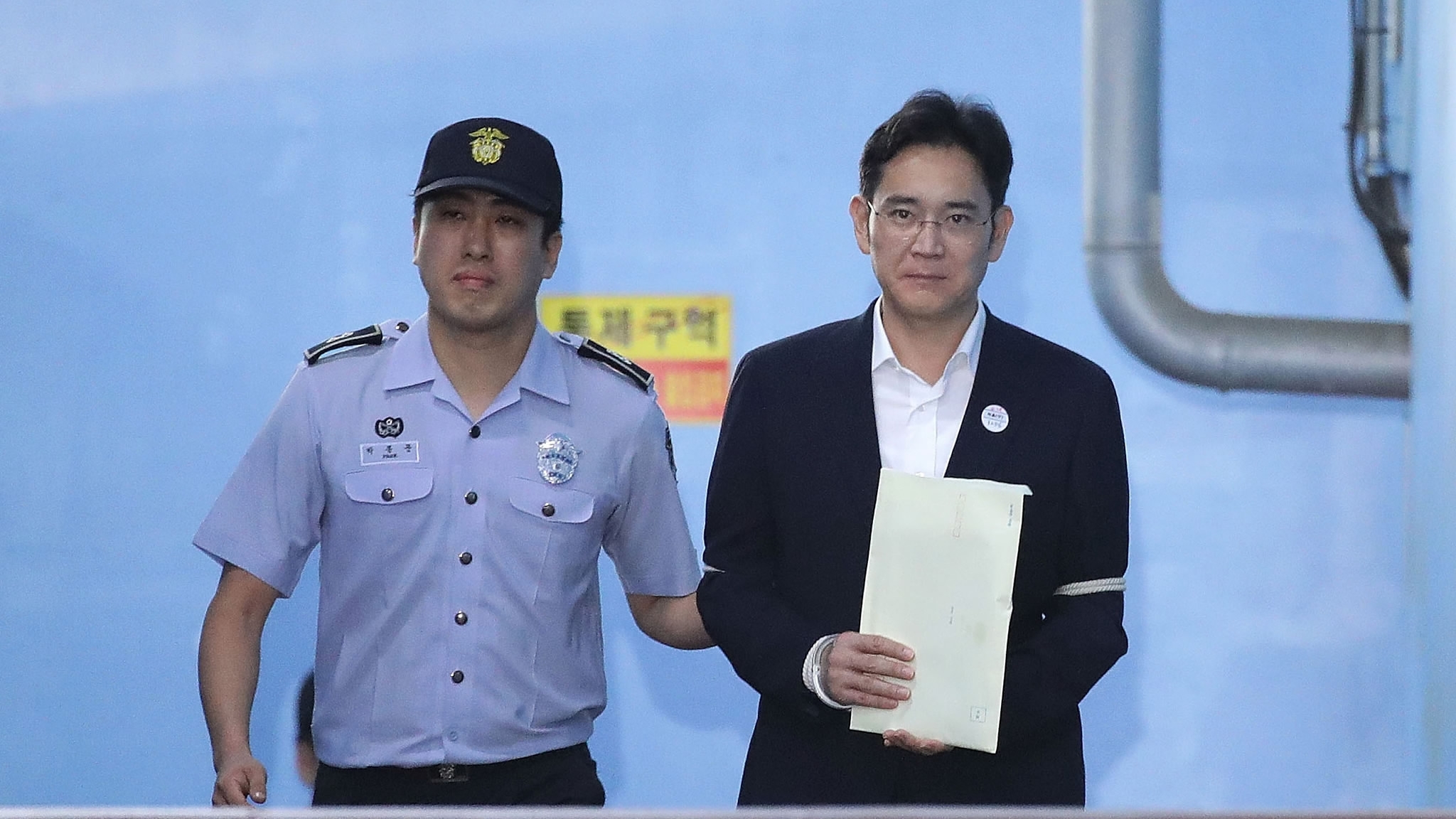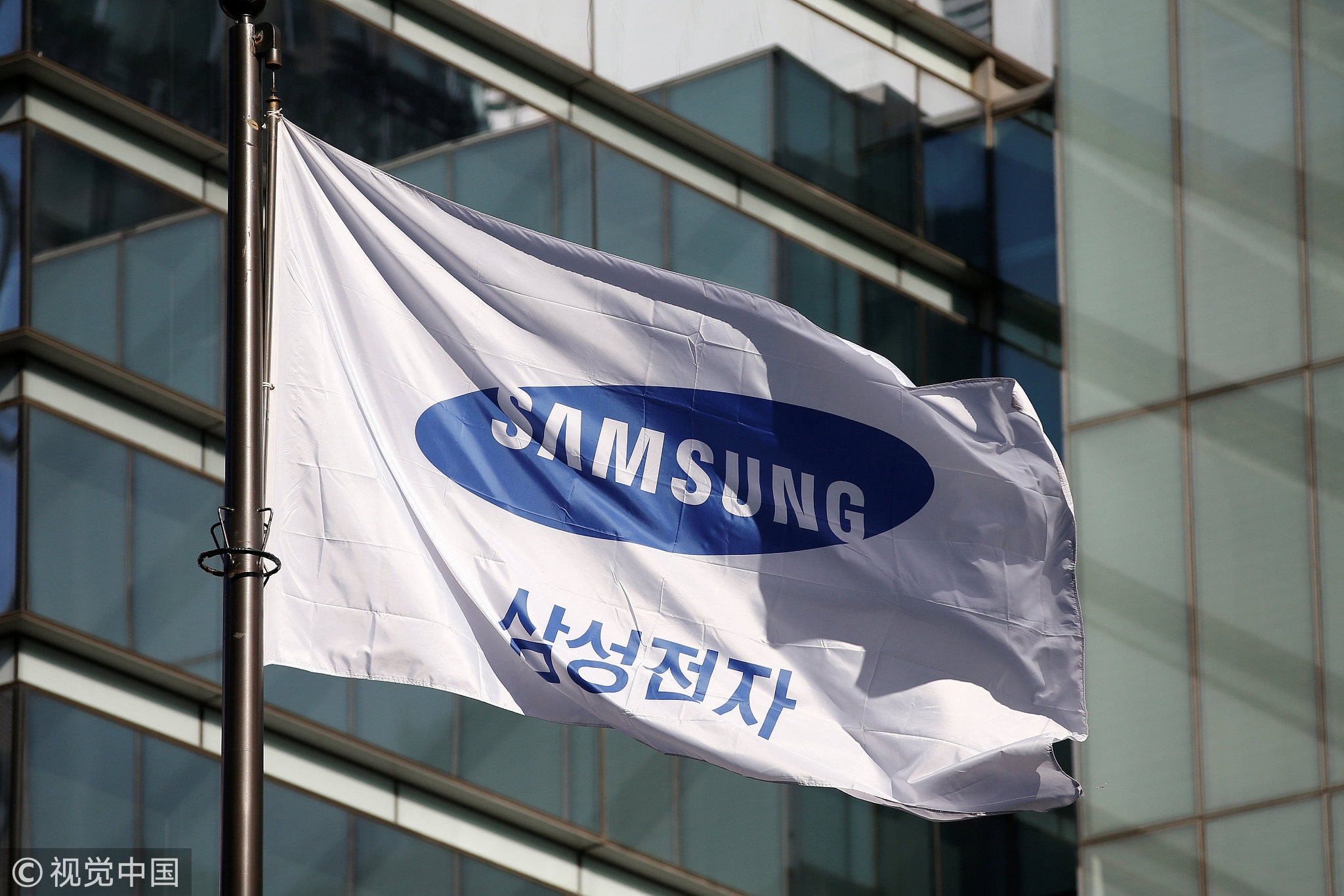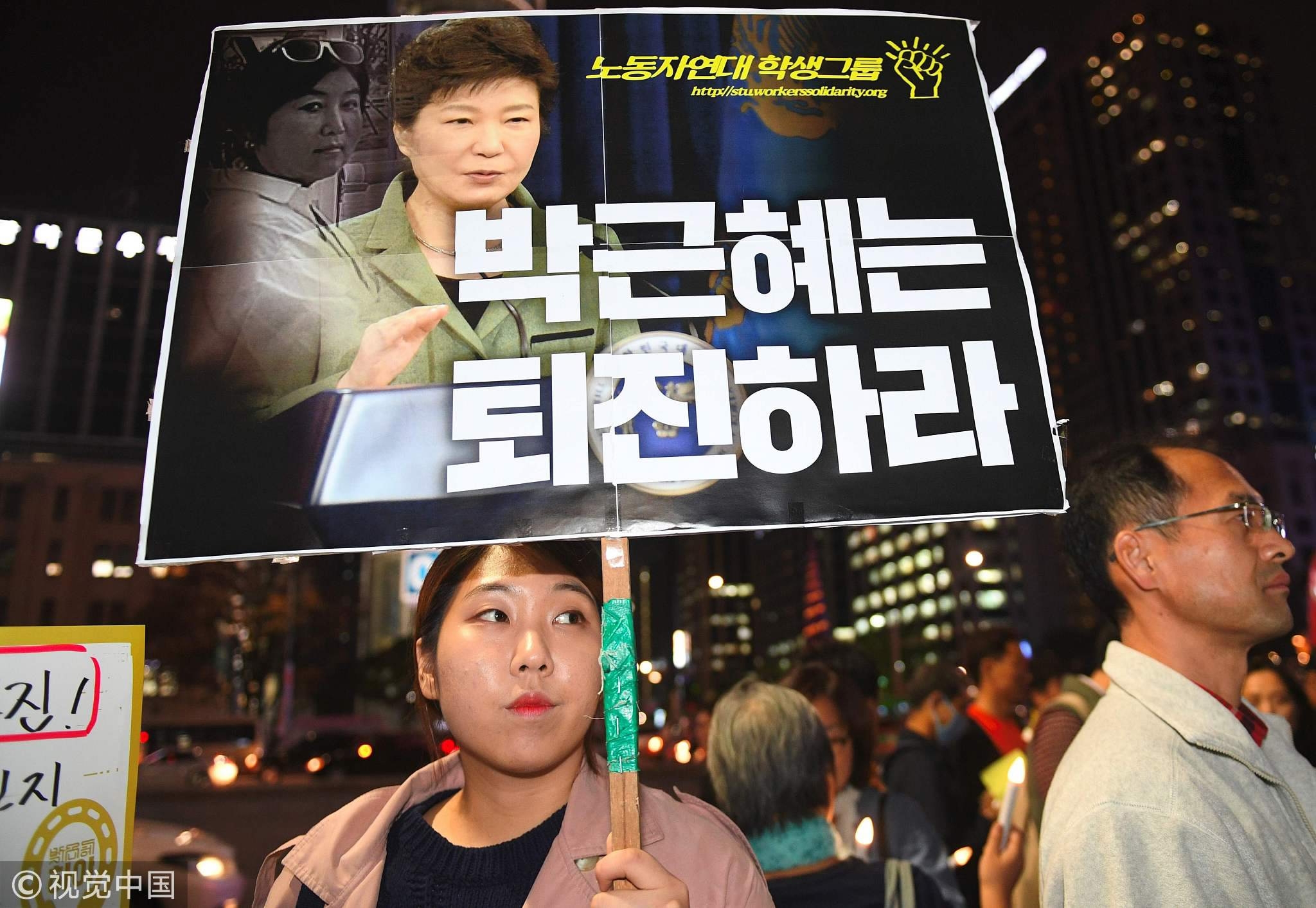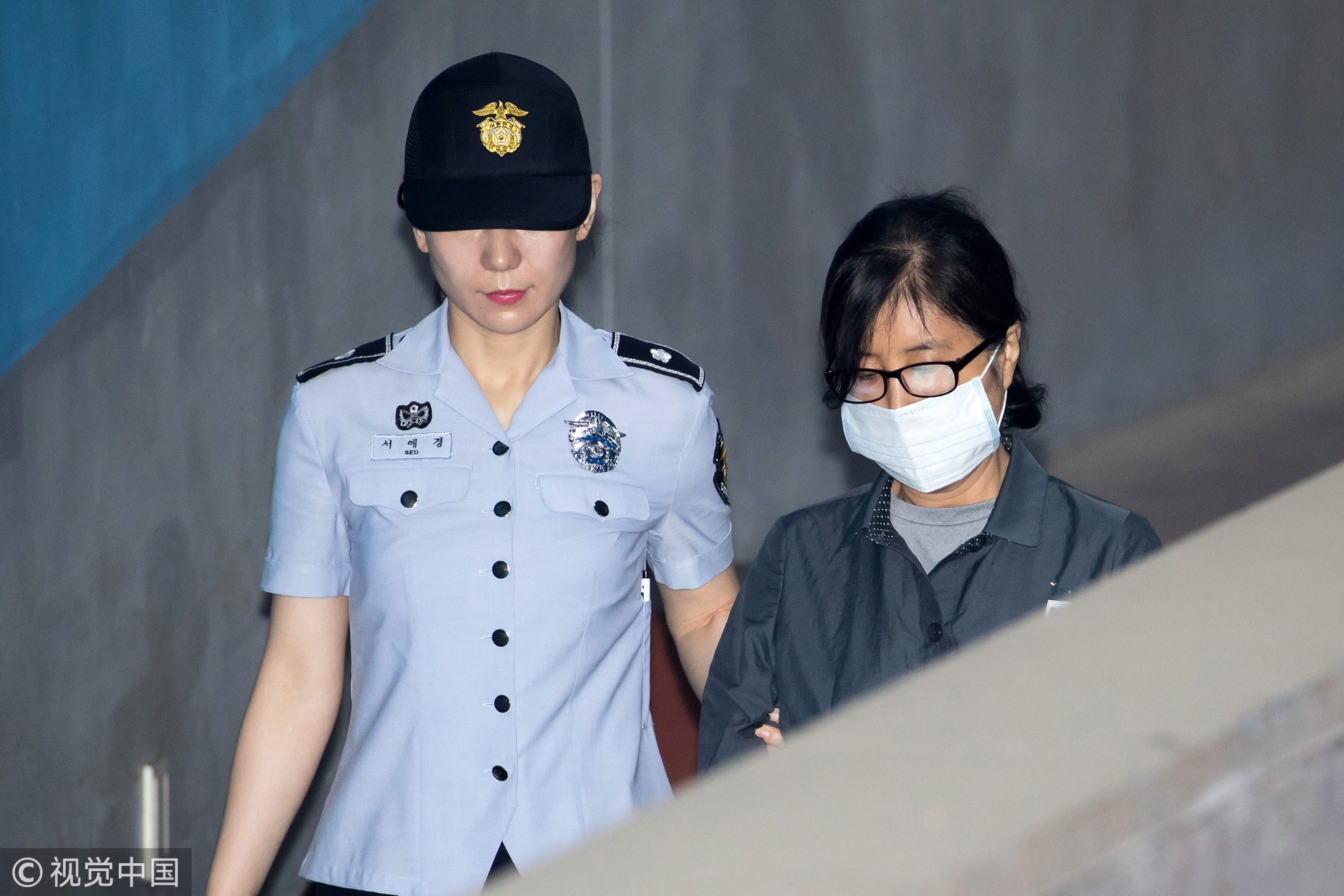
Politics
15:28, 05-Feb-2018
Review of Samsung heir Lee Jae-yong and Park's scandal
CGTN

A South Korean appeals court on Monday ordered the immediate release of Samsung heir Lee Jae-Yong's after handing him a suspended sentence.
Lee, the vice chairman of Samsung Electronics, who has been in detention for almost a year, was released after the Seoul High Court suspended a verdict issued last August which sentenced him to five years behind bars.
Lee allegedly gave 8.8 billion won (8.2 million US dollars) to Park and her longtime confidante, Choi Soon-sil, in return for government backing for the merger of two key Samsung units.
Who is Lee Jae-yong?
The 50-year-old is the son of Lee Kun-hee, chairman of Samsung Group, South Korea's largest conglomerate, and the grandson of Samsung's founder, Lee Byung-chul.
Lee is considered as the heir of the family firm.
He earned a degree in Asian history at South Korea's top Seoul National University and then went on to study business at Japan's elite Keio University and Harvard Business School.

VCG Photo
VCG Photo
He was made vice chairman of Samsung Electronics in 2013, the world's largest smartphone maker.
Since his father's illness in 2014, Lee became the de facto boss of the entire Samsung group.
What was he accused of?
Lee was indicted on five charges, including bribery, embezzlement and concealment of illegal proceeds, and has since been under pre-sentencing detention.
He was accused of offering 38 million US dollars in bribes to four entities controlled by Choi, a long-term friend to the ousted president.
Choi was accused of setting up the foundations to support Park's policies. Lee admitted to donating money to the funds but said Park forced him.
The Samsung heir was also accused of giving Choi billions of won to fund her daughter's equestrian career in Germany.
In return, Lee allegedly sought government approval for the eight-billion-US-dollar merge of two Samsung affiliates in 2015, a move which was widely seen to consolidate his power in the Samsung group.

A protester holds a placard showing portraits of former President Park Geun-hye in Seoul, October 27, 2016. /VCG Photo
A protester holds a placard showing portraits of former President Park Geun-hye in Seoul, October 27, 2016. /VCG Photo
Since his arrest last February, Lee has insisted the payments were made without his knowledge and that he didn't gain any favors from the Park administration.
South Korean prosecutors demanded 12 years in prison for Lee.
In August, the lower court in Seoul found him guilty on all five counts, but acknowledged only part of the bribes and tossed the pledged amount that was never paid.
Prosecutors made an appeal after the ruling.
Why is Lee's verdict important?
Monday's appeals trial has drawn high public attention, as it is believed it will affect the rulings on the corruption trial of Park and her friend Choi.
The disgraced former leader has been in jail since last April, following the Constitutional Court's ruling on her removal from office.

Choi Soon-sil is escorted by a prison officer as she arrives at the Seoul Central District Court for her trial in Seoul, July 10, 2017. /VCG Photo
Choi Soon-sil is escorted by a prison officer as she arrives at the Seoul Central District Court for her trial in Seoul, July 10, 2017. /VCG Photo
In a separate trial, Choi is accused of colluding with Park to extort millions of dollars from conglomerates, including Samsung and Hyundai, and using her connection with the president to meddle in state affairs.
Choi denied all 18 charges including abuse of power, coercion and bribery.
Prosecutors have demanded a 25-year prison sentence for her.
A court in Seoul has postponed her verdict to Feb. 13 from Jan. 26.
(With input from Yonhap)

SITEMAP
Copyright © 2018 CGTN. Beijing ICP prepared NO.16065310-3
Copyright © 2018 CGTN. Beijing ICP prepared NO.16065310-3